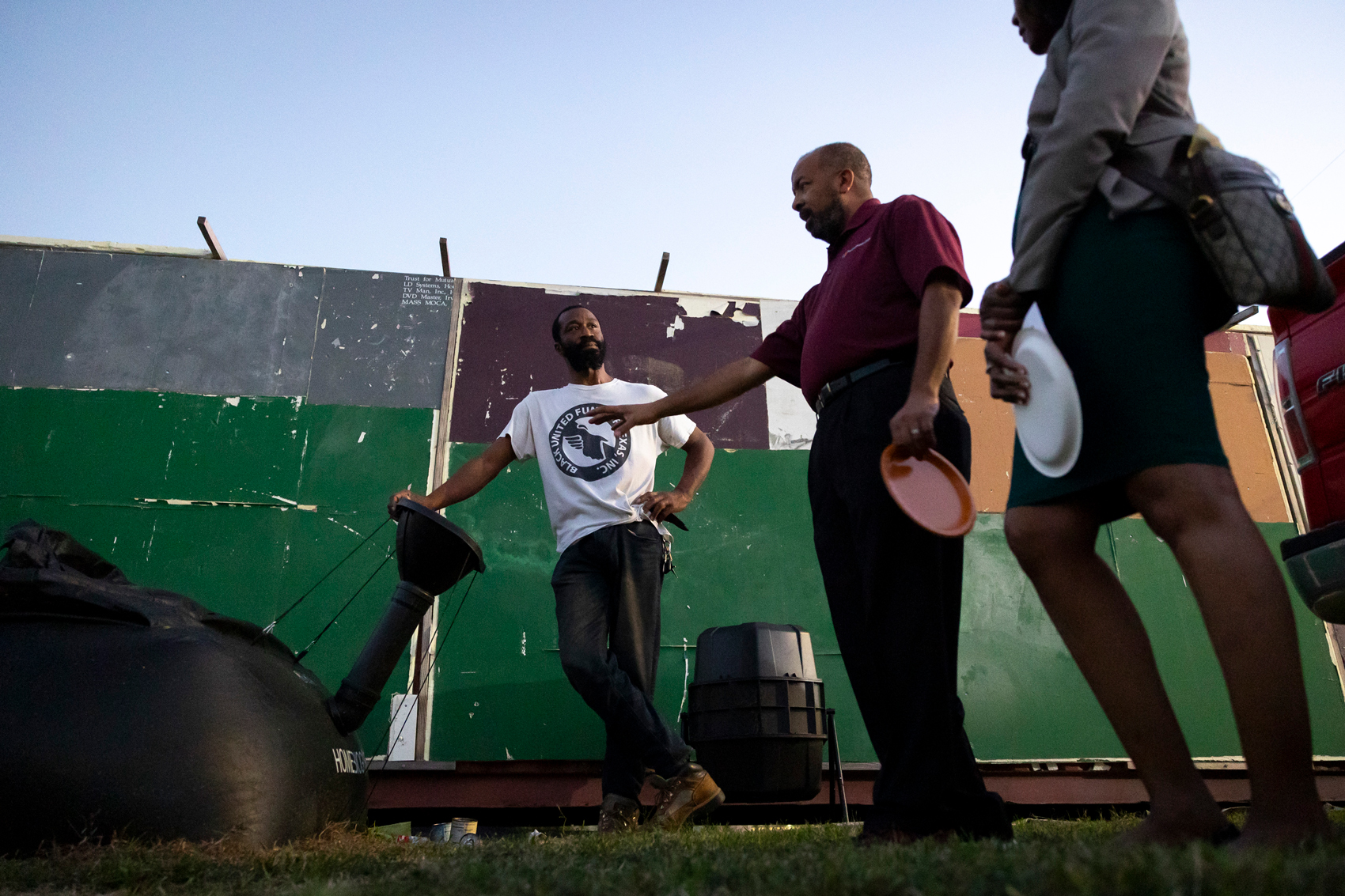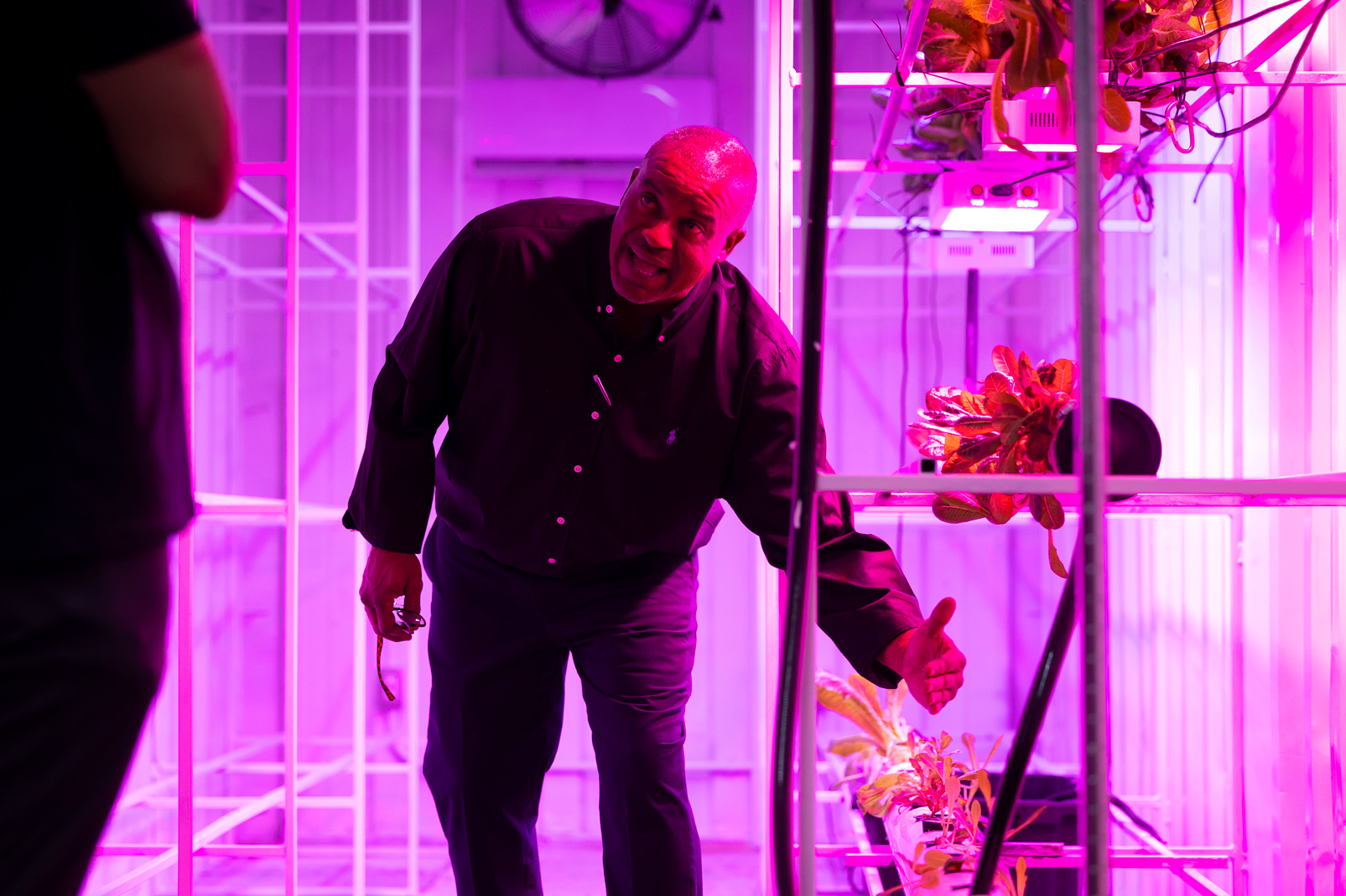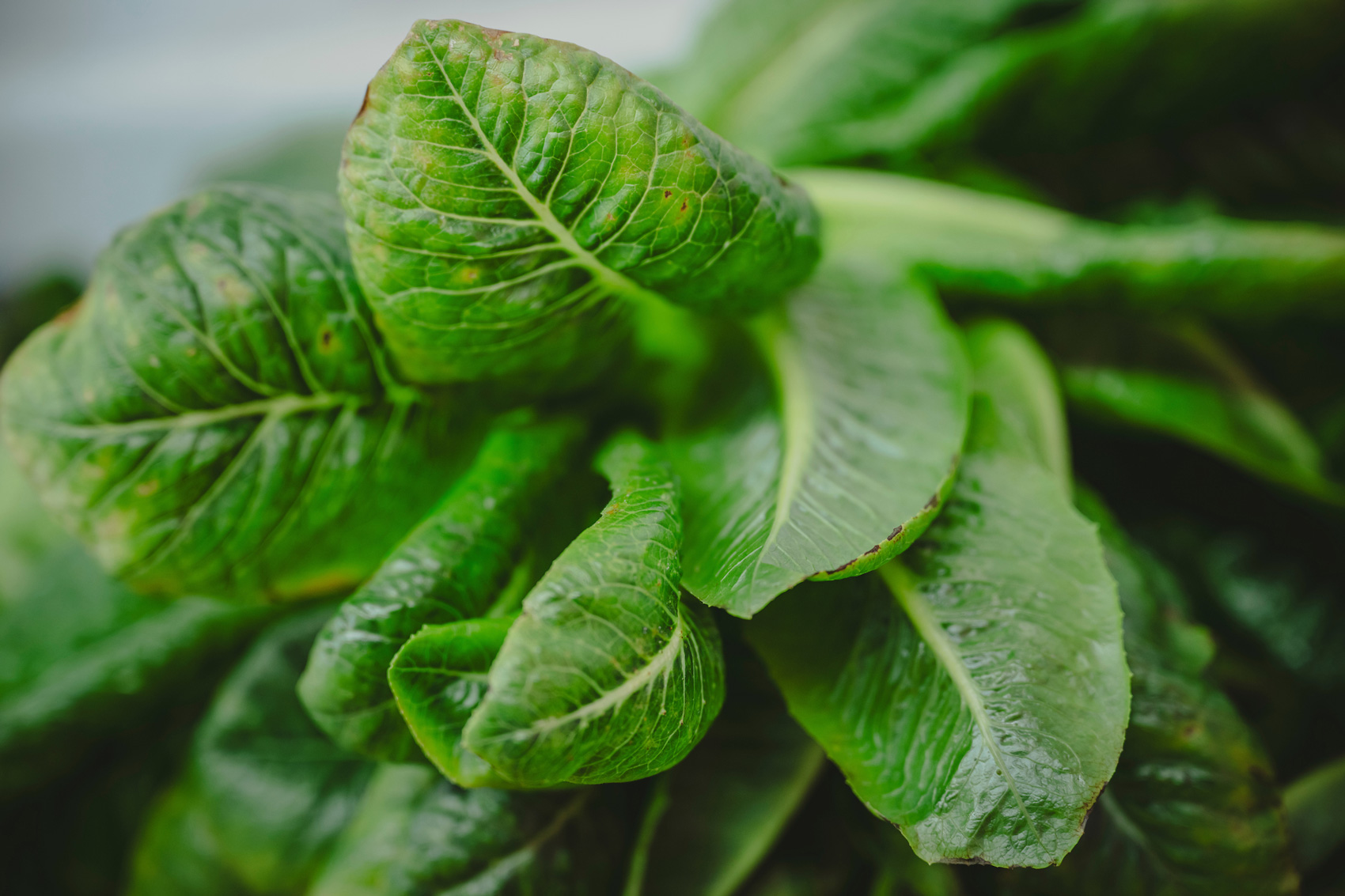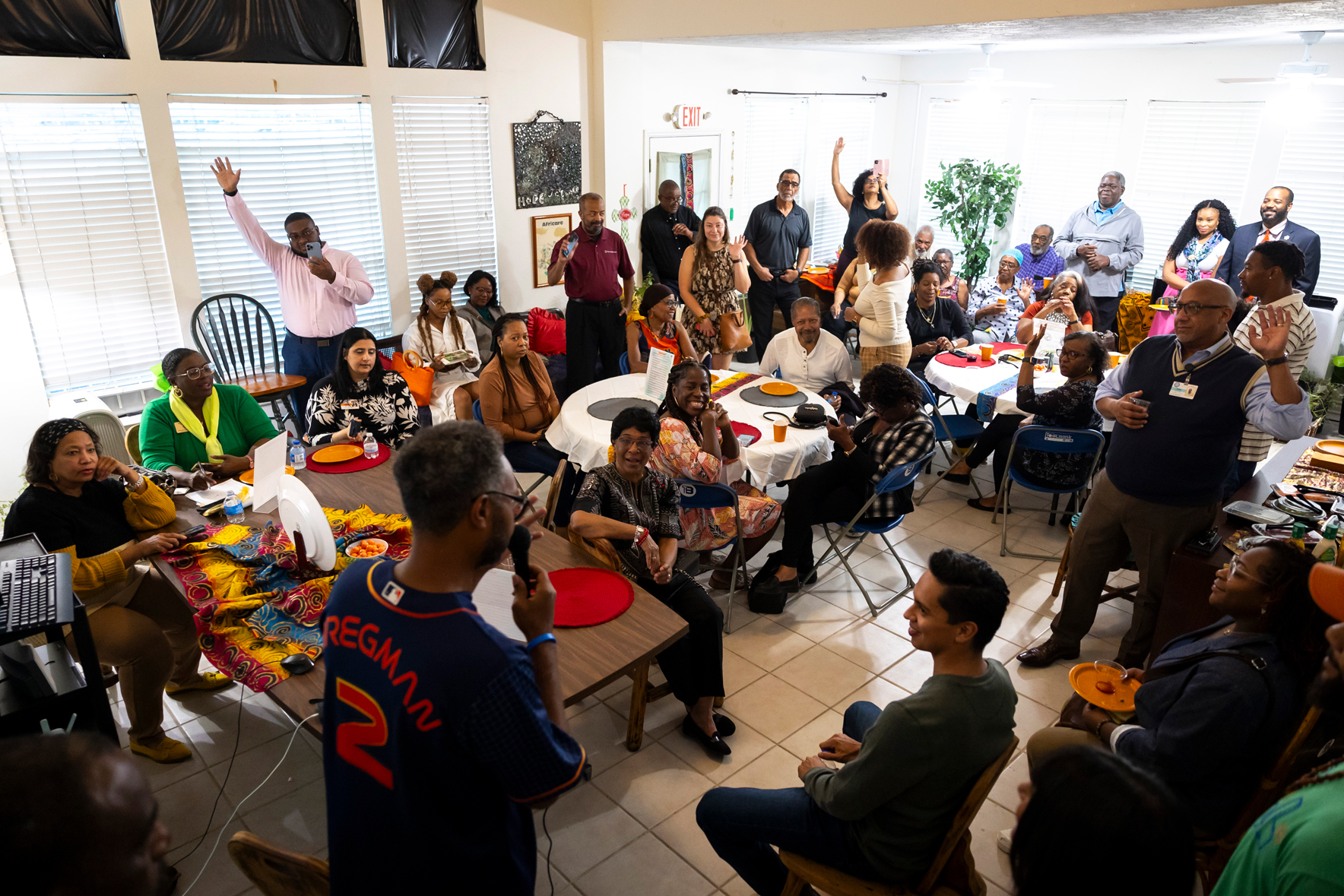|
Getting your Trinity Audio player ready...
|
Despite its bent and corroded exterior, the shipping container in Greater Fifth Ward is alight inside with grow lamps and leafy lettuce. PVC piping, strung along the side of the container, holds tiny plastic pots with baby lettuce. Harvested lettuce sits on a table near the entrance, free for the taking.
Rafash Brew is squatting down beside the shipping container tinkering with a piece of equipment. The horticulturalist has been working since 2021 on this project, which will eventually be a farm growing tomatoes, mushrooms, cilantro, ginger, turmeric along with lettuce. There is room for about 500 individual vegetable plants, or up to five acres worth of food, inside the one shipping container.
For any newcomer to the farm, Brew tells them to try the lettuce out. After some hesitancy, people will rip off a piece to munch on.
“No need to clean it,” Brew says. “It’s all fresh.”
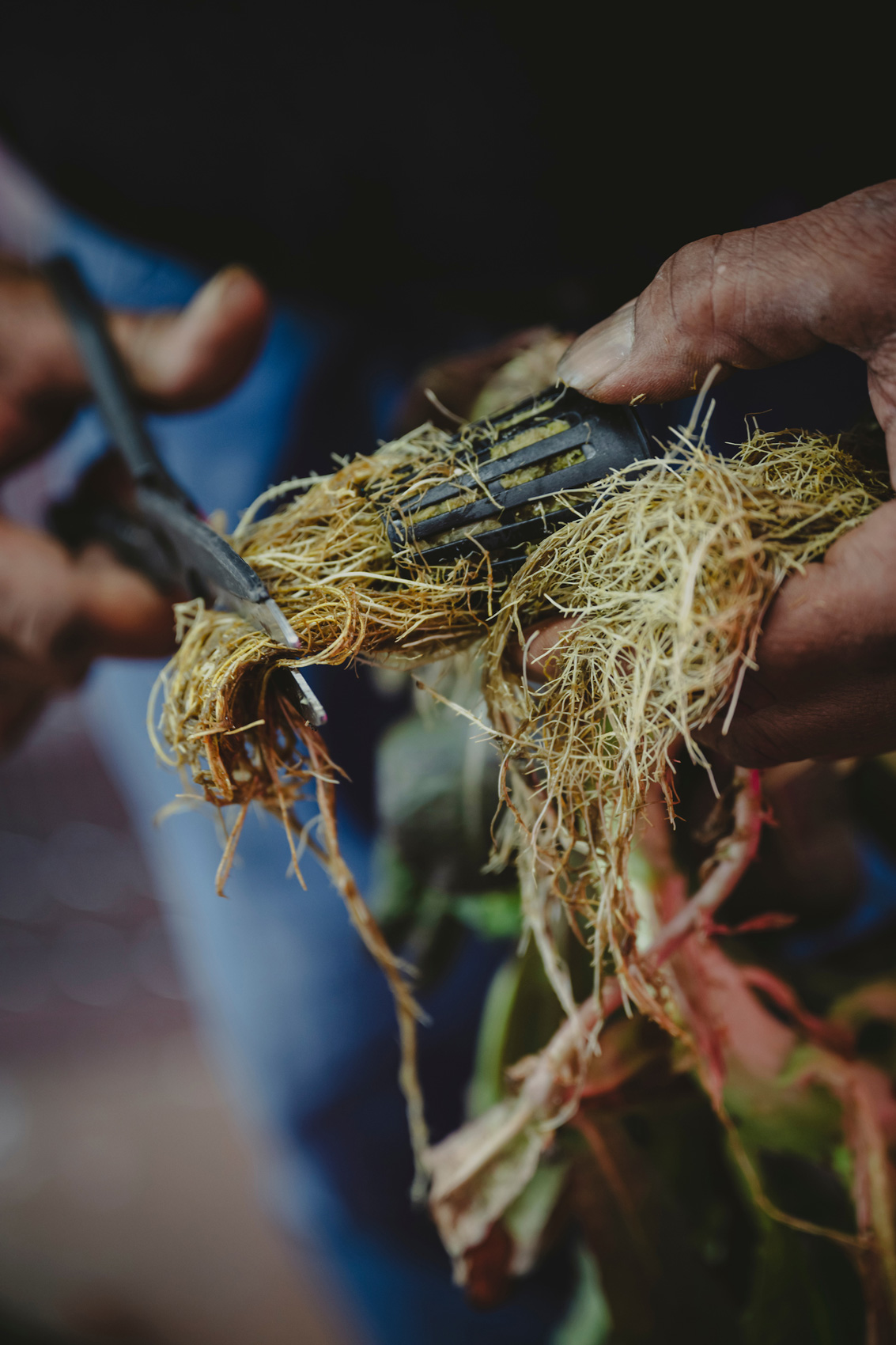
The 20-foot shipping container farm is on the front lawn of the headquarters of the Black United Fund of Texas, or BUFTX, a community-focused statewide organization that provides resources to Texas residents. With grant money from the Environmental Protection Agency, and a shipping container donated from the national movement Black Lives Matter, the organization created a hydroponic farm – which means growing plants using a mineral-rich water solution, rather than soil.
The vision for the farm is to promote food sovereignty, sustainability and nutritional access within Greater Fifth Ward – one of the hardest places in Houston to find fresh food.
READ MORE: How local artists are bringing the shipping container farm to life.
Container farms have popped up around Houston in the past, including one of the city’s biggest examples, Moonflower Farms, located south of the city since 2016. These farms use retrofitted shipping containers with grow lights as a substitute for farming in the ground. The benefit of a container farm is that it is climate-controlled – one of the biggest challenges to farming – so it can withstand freezes, extreme heat and the damage caused by hurricanes. In 2021, for example, Hurricane Uri cost Texas an estimated $600 million in agricultural losses.
Since the growing process is self-contained, contaminants from the soil and groundwater don’t get into the food, which makes for a sustainable practice in areas where industry used to be located. Plus, it can be used anywhere, urban or rural, and even in places where the soil is not appropriate for planting, like the soil in Fifth Ward.
Food deserts in Houston
Since Alycia McCardell has to drive about 10 to 15 minutes to get to a grocery store with fresh produce, she couldn’t imagine having to walk or take a bus like some of her neighbors. As a Fifth Ward resident and mother of a newborn baby girl, the 26-year-old knows how hard it is to find good food in her neighborhood.
She could walk to a gas station, she said, but she said she’d never get food there.
“It’s all the higher-income areas that seem to have better grocery stores and better produce,” McCardell said. “It will definitely help to have more places to get fresh produce here.”
On average, Fifth Ward residents have to travel between a half mile and a full mile to reach the nearest supermarket, according to the U.S. Department of Agriculture’s database on food security. Instead, many community members often buy what they need from local corner stores or gas stations, which have less fresh produce, or none at all.
Natalie Cambrice, a resident on the southeast side of Houston, visited the farm for the first time in the summer, when BUFTX was still working on the container. She came as a part of the SER senior community service program to learn more about the work at the farm and returned home with a bushel of lettuce. She has gone twice now and plans to go again.
As someone who relied on the food stamp program in Houston, fresh foods can be hard to come by for Cambrice, 58.
“Having access to high-quality vegetables is a big impact for me in terms of my food supply,” Cambrice said. “It lasts a whole lot longer than what I would get at the grocery store and I have more time to eat the food.”
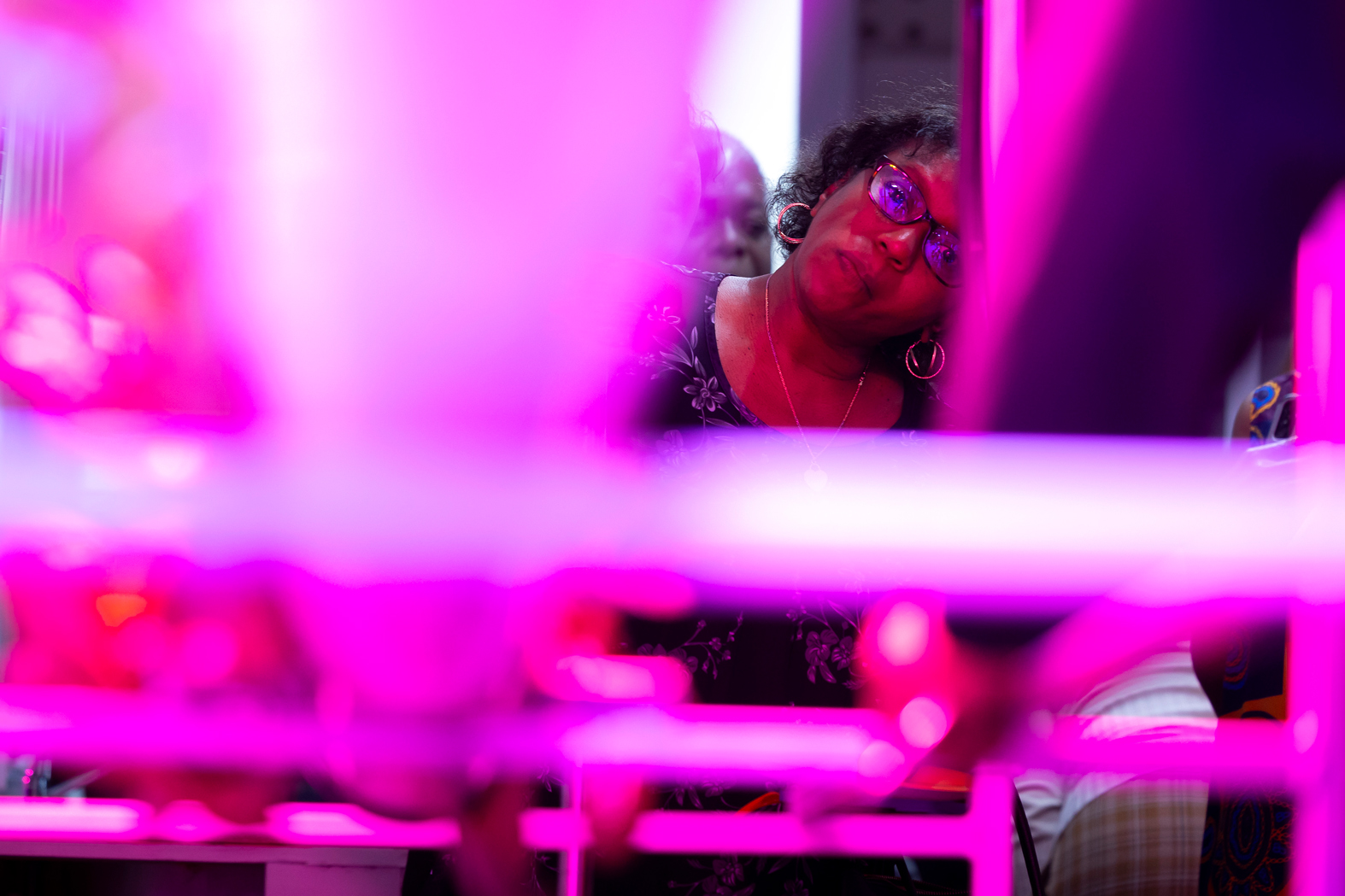
Cambrice can’t use her food stamps at the farmers market or other fresh produce markets, which limits what kind of vegetables she can get.
Planting a garden in Houston can be complicated for some communities. Neighborhoods like Greater Fifth Ward, Denver Harbor and Acres Homes used to be home to hazardous sites, such as gas stations, dry cleaners and rail yards that, over time, leached contaminants into the soil.
Because of this, many residents avoid planting gardens in the actual ground, which in turn limits the number of community garden spaces in the neighborhoods that need them.
Velika Thomas, the chief financial officer for BUFTX, said the container farm is just one response to a history of inequalities in Greater Fifth Ward and other communities in Houston. In 2019, the state designated the neighborhood a cancer cluster, meaning its residents have shown a greater-than-expected number of cancer cases over a specific period of time. Currently, the area is the subject of environmental testing by the EPA and Union Pacific Railroad, the landowner, over contamination caused by Union Pacific’s old rail yard.
Eventually, Thomas said the hope is that other Houstonians will view this container project as something they can incorporate in their own neighborhoods as a response to other environmental injustices throughout the city.
“No one is going to come in and help us do better for ourselves,” Thomas said. “We have to take that first initiative and advocate for ourselves here. We have to show that we are resilient by planting food, by growing our own food and by still keeping dollars circulating in the community so that it can flourish.”
‘Future of farming’
Danielle Getsinger helped get the container farm started through a grant proposal to the EPA. Getsinger, who leads Community Lattice, a nonprofit organization focused on land revitalization, worked with the city of Houston’s brownfields redevelopment program on the proposal, which granted BUFTX the financial support to build a shipping container farm in Greater Fifth Ward. When the grant was awarded in 2021, work began. In September 2023, the team of BUFTX workers along with volunteers started growing lettuce.
“We are interested in finding solutions that you can do on either contaminated land or spots where communities are interested in food security and holistic farming,” said Getsinger. “This site at the Fifth Ward was a convenient spot to start.”
“Thinking of resilient farming, this is the future,” Getsinger added. “It’s an opportunity to bring fresh fruits and vegetables to areas and you don’t need all the land to do it.”
So far, the farm has harvested three and a half pounds of lettuce in its early days, some of which residents have consumed, and BUFTX has given out to local restaurants and at local events.
Eventually, Thomas says she wants to give away the produce to a grocery store, but she wants to make sure it's a local spot. Larger supermarkets would sell the produce, instead of giving it away, with the profits going to the store chain rather than the community – which is not something Thomas wants.
Once a month, BUFTX will also host a market for residents to come collect their vegetables and fruit, and host a cooking demonstration so residents can know how to prepare the food in a healthy manner.
The cancer cluster and the contamination, Thomas said, are just one part of the overall problem.
“Even after the EPA testing in the Fifth Ward is resolved, there’s still going to be a food desert at the end of whatever that determination is,” she said. “So that’s what we still have to address. In the end, people here do not have good choices.”


